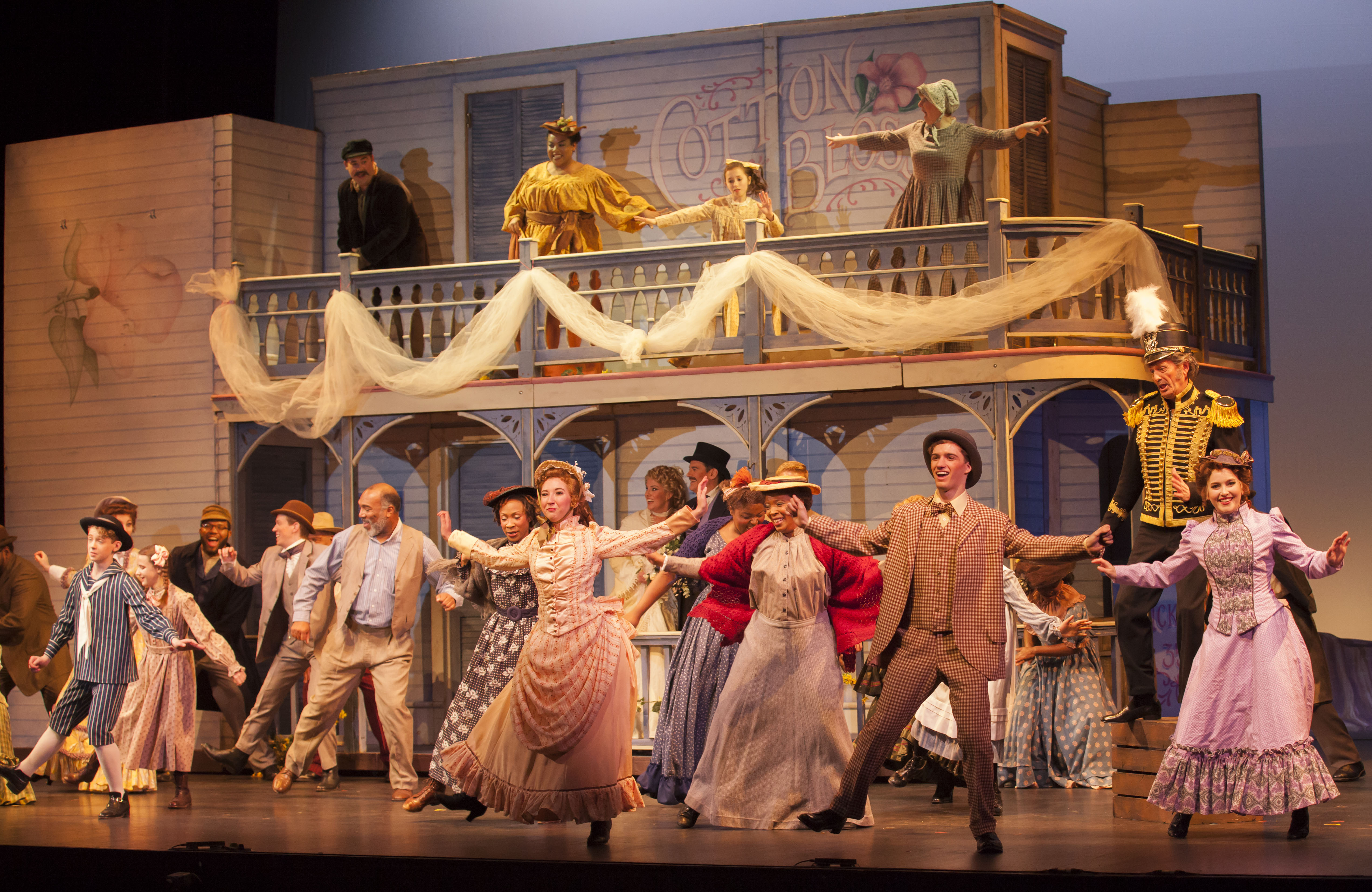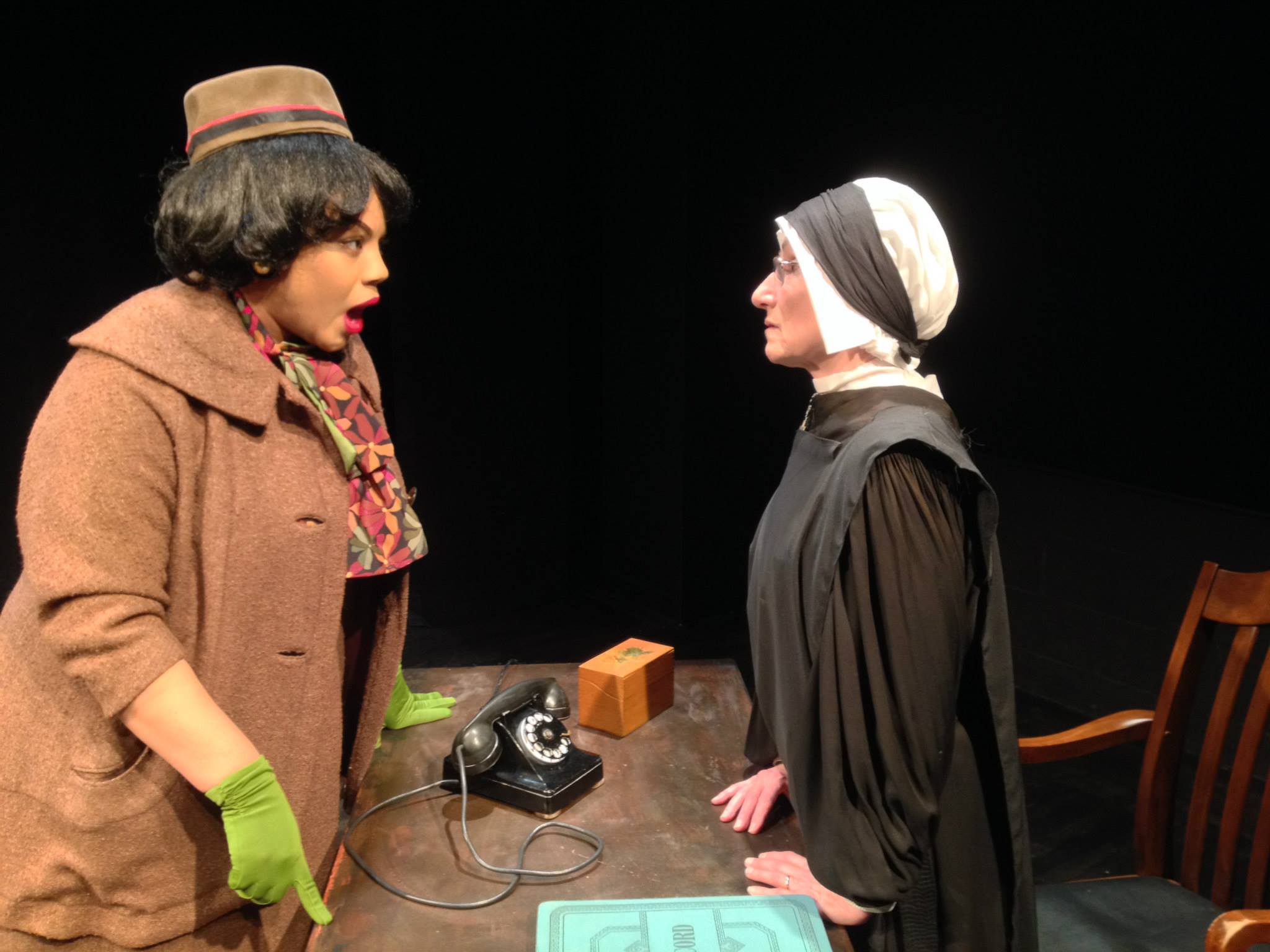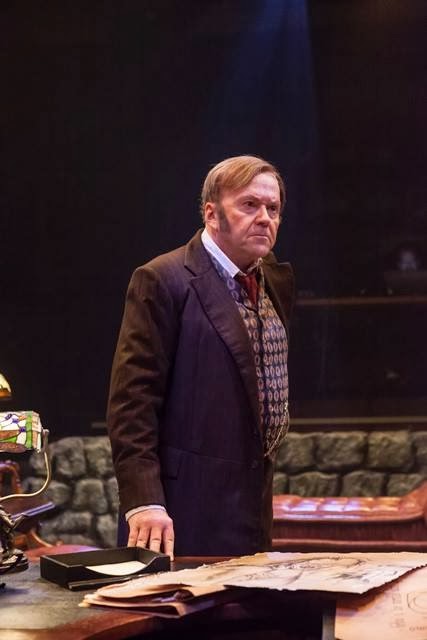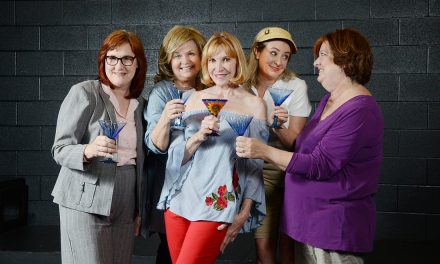Photo by Bill Brymer/provided by Kentucky Opera
Showboat
Music by Jerome Kern
Book & Lyrics by Oscar Hammerstein, II
Based on the novel Show Boat by Edna Ferber
This Production Originally produced by Goodspeed Musicals
Michael P. Price, Executive Director, Adapted and directed by Rob Ruggiero
Directed by David Gately for Kentucky Opera, Joseph Mechavich, conductor
Review of press preview by Kathi E. B. Ellis
Entire contents copyright © 2016 by Kathi E. B. Ellis. All rights reserved
Showboat chugged into Louisville this week, as part of Kentucky Opera’s 2015-2016 season, and I’ve been anticipating this production ever since it was announced. The relatively recent inclusion of Showboat in opera seasons, not just musical theatre schedules, continues to erase the barriers between the two performance genres, as do ‘cross-over’ works by Bernstein, Sondheim, and others.
Jerome Kern and Oscar Hammerstein’s 1927 classic carries some heavy freight. Billed as a musical comedy during its original Broadway run, it’s a production that puts black and white performers on stage together at a time when that was still unusual; the dance and music forms embrace then-contemporary vaudeville, minstrel, jazz and Negro spiritual influences; the story places race, the legal construct, together with our emotional relationships, at the center of a plot about the performance industry (a combination which has a sharp resonance in the spring of 2016) and, of course, some of the most recognizable songs in the American music canon.
Act one takes place on and around the “Cotton Blossom,” one of many family-run riverboat performance enterprises in the late 19th century, which meanders up and down the Mississippi, docking in small towns for performances. Act two, described in an original review as ‘peripatetic,’ moves north to a myriad of locations in the Chicago area, before returning to the familiar “Cotton Blossom.”
It is this production aspect which presents the first challenge to Kentucky Opera. In an already lengthy show, the scene changes continually interrupt the flow of story telling and the emotional arc. In act one, the showboat is repeatedly taken apart to recreate the interior locations and reconstructed for the dockside scenes. The almost-filmic intercuts of act two’s Chicago venues present a series of short scenes with (on preview night) awkwardly-long scene changes, and the final transfer from a cluttered New Year’s party scene back to the “Cotton Blossom” was not only exceptionally long, but the supertitles helpfully indicated “Twenty Years Later,” as the drapes revealed us to be back at the showboat, an unfortunate irony.
Kentucky Opera has assembled a large cast of local and visiting artists – including the ever-burgeoning Studio Artist program – embracing performers from the opera, music theatre and theatre worlds. While there are excellent performances during the evening, there is an awkward tension between performance styles which, while arguably inherent in the production’s structure, nevertheless undercut the evening’s cohesiveness.
Early on the rapport established between Deborah Mae Hill and Gregory Gerbrandt, as Ella May and Frank respectively, brings charm and sure-handed comedy to the proceedings. Alyson Cambridge’s Julie is beautifully modulated vocally and dramatically, with “Bill” heart stopping reaching the depths of Julie’s ruined world. Derrick Parker brings the appropriate authority to Joe’s iconic, “Old Man River,” especially in the act two reprise, while the male ensemble (including Studio Artist Jameon Moss), in the act one rendition of this number, provides richly nuanced support.
The arrival of Gaylord Ravenal (Keith Phares) injects an assured energy into both the story and this production. “Make Believe,” his duet with Magnolia (Emily Albrink), embodies exactly how a naïve girl could be swept up by his romantic vision. Both a charmer and an opportunist, Phares’ Gaylord manages to persuade us that his abandonment of Magnolia is done with sincere regret, paving the way for his world-wiser return at the end. Albrink’s young Magnolia is hampered by an unbecoming meringue of a costume which works against the character’s youth. Albrink comes into her own in the Chicago scenes where we see and hear the costs of growing up, and her rendition of “Can’t Help Lovin’ Dat Man”, pays homage to Julie’s teaching and traces her own pain. On a side note, the uncredited piano player in the Trocadero provides exquisitely-timed ‘accompaniment’!
At the preview, the first time that the Louisville Orchestra and the performers came together, there were occasions when the tempo of one diverged from the other, dragging down the emotional intensity of the moment. Technicians were also resolving issues of balance between the spoken word and underscore. And, as the supertitles only served the lyrics, there were swathes of time when the book scenes were unclear. It is to be hoped that these issues will be resolved before opening night.
For those who love the intertextuality of Kern’s music or are aficionados of early American musical theatre, this production will satisfy. However, Maestro Joseph Mechavich and director David Gately do not consistently overcome the inherent challenges of this dense omnibus of the American theatre.
Showboat
Thursday, February 18, 2016 at 8 pm
Friday, February 19, 2016 at 8pm
Saturday, February 20, 2016 at 8pm
Sunday, February 21, 2016 at 2pm
For tickets call 502-584-7777
Kentucky Opera
W.L. Lyons Brown Theatre
315 West Broadway
Louisville, KY 40202
Kentuckyopera.org
Kathi E.B. Ellis is a member of the Lincoln Center and Chicago Directors’ Labs and an associate member of the Stage Directors & Choreographers Society. She has attended the LaMama Directing Symposium in Umbria, Italy, and is featured in Southern Artisty, an online registry of outstanding Southern Artists. Her directing work has been recognized with nominations for the South Florida Theatre Carbonell Award. Locally, Kathi is a member of Looking for Lilith Theatre Company, a founding principal of StageLab theatre training studio, and is part of ShoeString Productions an informal producing collective. She has written book reviews and articles for Southern Theatre, the quarterly publication of the Southeastern Theatre Conference, and was a contributing writer for JCPS’ textbook for the 11th grade Arts and Humanities survey course and for YouthArts Tapestry, a Kentucky Arts Council publication.





